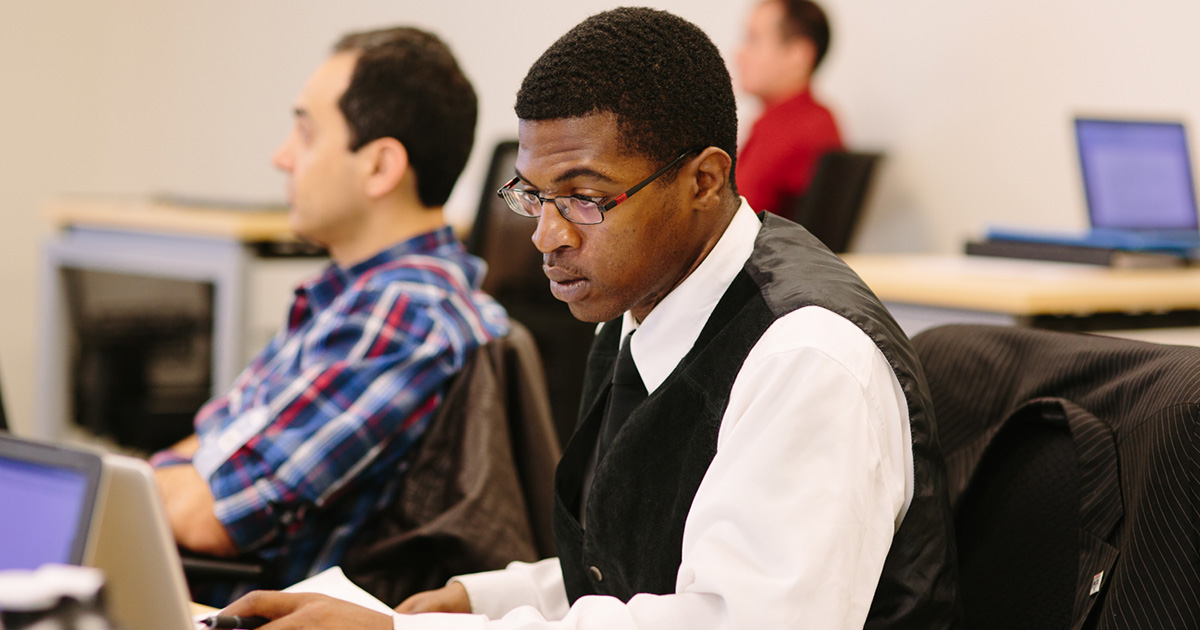Preliminary Implementation Findings from the SaveUSA Evaluation
Mayor’s Fund & Center for Economic Opportunity Social Innovation Fund Project

Overview
The Social Innovation Fund (SIF), an initiative enacted under the Edward M. Kennedy Serve America Act, deploys millions of dollars in public-private funds to expand effective solutions in three issue areas: economic opportunity, healthy futures, and youth development and school support. This work seeks to create a catalog of proven approaches that can be replicated in communities across the country. Administered by the Corporation for National and Community Service, the SIF generates a 3:1 private-public match, sets a high standard for evidence, empowers communities to identify and promote solutions, and creates an incentive for grant-making organizations to direct funding more effectively to promising programs. The SIF is part of the federal government’s broader agenda to redefine how evidence, innovation, service, and public-private cooperation can be used to tackle urgent social challenges.
Mayor’s Office for Economic Opportunity (NYC Opportunity) first SIF project, led by the Mayor’s Fund to Advance New York City and NYC Opportunity, was launched in collaboration with MDRC. This SIF project replicated and tested five antipoverty programs drawing on strategies that had shown evidence of effectiveness in New York City and elsewhere: Jobs-Plus, WorkAdvance, Family Rewards, Project Rise, and SaveUSA. MDRC also participated in a second SIF initiative with the Edna McConnell Clark Foundation and the Bridgespan Group.
Additional Project Details
Agenda, Scope, and Goals
The five programs operated in many cities and served diverse populations. Collectively they aimed to achieve change in critical measures of economic opportunity including educational and vocational skills, employment outcomes, savings, and other measures of family well-being. Because building a national evidence base is a central goal of the federal Social Innovation Fund (SIF), three of the five projects (Family Rewards, SaveUSA, and WorkAdvance) took part in random assignment evaluations.
Design, Sites, and Data Sources
The five programs developed and evaluated as part of this project were:
- Jobs-Plus. Jobs-Plus addresses entrenched poverty among public housing residents by saturating developments with job and career assistance, rent-based work incentives, and neighbor-to-neighbor support for work. In previous experimental pilot tests, residents’ earnings had increased relative to a control group for at least seven years in developments where the program was fully implemented, including at least three years after program services ended. The SIF version of the program was implemented in public housing developments in New York City and San Antonio, TX.
Family Rewards. Inspired by the success of conditional cash transfer programs in a growing number of countries worldwide, Family Rewards offered cash incentives to families for reaching milestones on the road to better health, education, and employment, while also reducing their current poverty and material hardship. Building on preliminary results from an earlier demonstration in New York City, Family Rewards 2.0, as it came to be known, focused on the most promising incentives tested in the first initiative and also offered families new kinds of guidance and support. The program was implemented in Memphis, TN, and New York City.
-
Project Rise. Project Rise provided disconnected 18- to 24-year-olds with support and internships contingent on their participation in education, in Kansas City, MO, Newark, NJ, and New York City. These paid internships were intended as an incentive for young adults to continue their education and as preparation for regular employment.
- SaveUSA. This asset-development program offered a matched savings account to low-income tax filers, building on the savings opportunity presented by tax refunds, especially the Earned Income Tax Credit. In a similar program pilot tested in New York City, evidence suggested that a substantial proportion of participants who deposited money in a designated savings account maintained their deposits for at least a year and received the match. The program was implemented in Newark, NJ, San Antonio, TX, Tulsa, OK, and New York City.
Subgrantees were chosen through a competitive selection process. City-specific selection committees (which included local stakeholders, the Mayor’s Fund, the Center for Economic Opportunity, MDRC, and national experts) reviewed applicants’ alignment with specific program models, programmatic and organizational capabilities, and commitment to rigorous evaluation. The providers selected for each program were:
-
Jobs Plus: BronxWorks (New York City), San Antonio Housing Authority (San Antonio, TX)
-
WorkAdvance: PerScholas (New York City), St. Nicks Alliance (New York City), Towards Employment with Burdman Group (Cleveland and Youngstown, OH), Madison Strategies Group (Tulsa, OK)
-
Family Rewards: Children’s Aid Society with BronxWorks (New York City), Children’s Aid Society with Porter-Leath and Urban Strategies Memphis HOPE (Memphis, TN)
-
Project Rise: FEGS Health and Human Services (New York City), Henry Street Settlement (New York City), Kingsborough Community College (New York City), Rutgers University (Newark, NJ), Full Employment Council (Kansas City, MO), Catholic Charities of Kansas City - St. Joseph (Kansas City, MO)
- SaveUSA: Food Bank for New York City (New York City), Newark Now (Newark, NJ), United Way of San Antonio and Bexar County (San Antonio, TX), Community Action Project of Tulsa (Tulsa, OK)
Featured Work
Findings from Family Rewards 2.0







